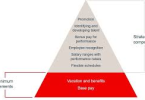Memory is one of the most important cognitive skills for students. Whether you’re preparing for exams, writing assignments, or simply trying to absorb new information for class, your ability to retain and recall information will make a significant difference in your academic success. Fortunately, there are numerous strategies and techniques that can enhance your memory and help you perform better in school.
In this detailed article, we will discuss various memory improvement tips for students that can be easily incorporated into your daily study routine. These tips have been backed by scientific research and are proven to help boost memory retention, recall, and overall cognitive function.
1. Practice Active Learning

Active learning is a highly effective method to boost your memory. Instead of passively reading or listening to lectures, active learning encourages you to engage with the material in a deeper way. This process helps solidify the information in your long-term memory. Here’s how you can implement active learning in your study routine:
- Summarize What You Learn: After studying a topic, take a moment to summarize what you’ve learned in your own words. Writing down or saying aloud the key points helps reinforce the material.
- Teach What You Learn: Teaching someone else what you’ve just learned is a powerful memory improvement tip. Explaining the material forces you to process and rephrase the content, which helps solidify the information in your brain.
- Ask Questions: Create questions based on the material and try to answer them. This method enhances understanding and retention. If you’re studying from a textbook, ask yourself what the main ideas are and try to connect them to previous lessons.
By actively engaging with the material, you’re more likely to retain information and develop a deeper understanding of the content.
You may also like to read this:
Latest Education Updates – What’s Changing In 2025
2025 School And College News: What’s New In Education
Top Global Education Policy Changes Reshaping Learning Today
15 Note-Taking Strategies For Students To Boost Learning
Create An Effective Study Schedule Planner For Results
2. Use Mnemonic Devices
Mnemonic devices are memory aids that help you remember complex information by associating it with something easier to recall. These techniques have been used for centuries to enhance memory retention. Here are some examples of mnemonic devices you can use to improve your memory:
- Acronyms: Create a word using the first letter of each word you want to remember. For example, in math, the order of operations (Parentheses, Exponents, Multiplication, Division, Addition, Subtraction) is often remembered by the acronym PEMDAS.
- Rhymes and Songs: Turning information into a rhyme or song can significantly improve recall. Think about how the alphabet song helps children learn their ABCs.
- Visual Imagery: Creating vivid mental images of the material you’re trying to remember is another powerful mnemonic device. For example, if you’re studying for a history exam, try to picture historical events in your mind, associating key figures or events with unique images.
By employing mnemonic devices, you make the information more memorable and easier to recall when you need it.
3. Use Spaced Repetition
Spaced repetition is a proven memory improvement technique based on the idea that information is better retained when it’s reviewed at increasing intervals over time. The technique capitalizes on the psychological spacing effect, which states that humans remember information better when it is spaced out over several repetitions rather than crammed into a single study session. Here’s how you can use spaced repetition effectively:
- Set a Study Schedule: Break your study sessions into manageable chunks and space them out over several days or weeks. For example, after you first study a topic, review it the next day, then after three days, a week, and so on.
- Use Spaced Repetition Software: Many apps like Anki, Quizlet, and SuperMemo are designed specifically for spaced repetition. These tools track your progress and help remind you when it’s time to review material, ensuring you retain the information in the long run.
Using spaced repetition is one of the best memory improvement tips for students, especially for subjects that require heavy memorization, such as languages, math formulas, and historical facts.
4. Get Enough Sleep
Sleep plays a critical role in memory consolidation—the process by which short-term memories are transformed into long-term memories. During sleep, the brain strengthens connections and processes the information it absorbed throughout the day. If you’re not getting enough sleep, your brain can’t effectively store and recall memories.
Here are some memory improvement tips for students related to sleep:
- Aim for 7-9 Hours of Sleep: Studies have shown that students who get adequate sleep perform better academically. Aim for 7-9 hours of sleep each night to support memory consolidation and cognitive function.
- Avoid All-Nighters: Cramming the night before an exam may seem like an effective study method, but it disrupts the memory consolidation process. Instead, spread your studying over multiple days and prioritize sleep to allow your brain to process the information.
- Naps for Memory Boost: If you’re feeling fatigued during the day, a short 20-30 minute nap can help refresh your mind and improve recall. Just make sure not to nap for too long, as it can interfere with your nighttime sleep.
Getting proper rest is essential for maximizing your memory and academic performance.
5. Exercise Regularly

Physical exercise is not only beneficial for your body but also for your brain. Exercise increases blood flow to the brain, stimulates the growth of new brain cells, and enhances cognitive function. Engaging in regular physical activity can also help reduce stress, which can impair memory and focus.
Here’s how regular exercise can serve as one of the best memory improvement tips for students:
- Cardio Activities: Activities like running, cycling, or swimming increase oxygen and nutrients to the brain, enhancing memory and learning capacity.
- Short Breaks for Movement: Taking short breaks to stretch, walk around, or do a few jumping jacks can improve blood flow to your brain and boost focus during study sessions.
By incorporating regular exercise into your daily routine, you’re giving your brain the best chance to retain and recall information.
6. Stay Hydrated and Eat Brain-Boosting Foods
Proper nutrition plays a key role in brain health and memory. Dehydration and poor diet can impair cognitive function, making it harder to retain and recall information. Here are some memory improvement tips for students to ensure you’re feeding your brain with the right fuel:
- Drink Plenty of Water: Dehydration can lead to fatigue, poor focus, and memory problems. Aim to drink at least 8 cups (2 liters) of water a day to stay hydrated and maintain cognitive function.
- Eat Brain-Boosting Foods: Incorporate foods rich in nutrients that support brain health, including:
- Omega-3 Fatty Acids: Found in fatty fish like salmon, omega-3s are essential for memory and cognitive function.
- Antioxidant-Rich Foods: Blueberries, leafy greens, and other antioxidant-rich foods protect the brain from oxidative stress and improve cognitive performance.
- Nuts and Seeds: Rich in healthy fats and vitamins, nuts like walnuts and seeds like flaxseed can boost brain health.
- Omega-3 Fatty Acids: Found in fatty fish like salmon, omega-3s are essential for memory and cognitive function.
What you eat directly impacts your memory, so make sure to include brain-boosting foods in your diet.
7. Practice Mindfulness and Meditation
Mindfulness and meditation have been shown to enhance focus, reduce stress, and improve memory. By practicing mindfulness, you can train your brain to focus on the present moment, which helps improve attention and memory.
Here are some memory improvement tips for students involving mindfulness:
- Daily Meditation: Spend 10-15 minutes a day practicing meditation. Focus on your breathing and let go of any distracting thoughts. This practice can reduce stress and improve memory retention.
- Mindful Study Breaks: When you take breaks during your study sessions, incorporate mindful breathing or a few minutes of meditation to refresh your mind.
Mindfulness reduces stress and anxiety, which often interfere with memory. By incorporating meditation into your routine, you’ll increase your ability to focus and retain information.
8. Stay Organized
A cluttered environment can lead to cognitive overload and make it harder to concentrate. Staying organized helps reduce mental clutter, allowing your brain to focus on the material you’re studying.
Here are some memory improvement tips for students related to staying organized:
- Use a Planner: Keep track of deadlines, study schedules, and assignments in a planner or digital calendar. Being organized reduces stress and ensures that you’re prepared for each task.
- Keep Notes Neat and Structured: Organize your study materials and notes by subject, topic, or chapter. This makes it easier to find information when you need it and helps you study more efficiently.
An organized study environment allows you to concentrate better, which improves your memory and retention.
9. Practice Visualization and Memory Palaces
Visualization is a powerful memory technique that helps you recall information by associating it with vivid, memorable images. One of the most effective visualization methods is the memory palace technique, where you mentally place the information you want to remember in a familiar environment.
How to Use Visualization:
- Create a Memory Palace: Choose a familiar location, like your home, and mentally place the items or concepts you want to remember in specific rooms or locations. When you need to recall the information, mentally walk through your “palace” and retrieve the data.
- Visualize Complex Ideas: For challenging concepts, create 3D models or mental maps of the ideas. Visualizing abstract information helps to make it more concrete and easier to remember.
10. Reduce Stress and Stay Positive
Excessive stress can impair memory and hinder academic performance. Managing stress is crucial for optimal brain function. Incorporating stress-relief techniques into your routine helps maintain a positive mindset and improves memory.
Stress Management Tips:
- Practice Stress-Relief Techniques: In addition to mindfulness and meditation, try techniques like yoga, progressive muscle relaxation, or deep breathing exercises to reduce stress.
- Stay Positive and Motivated: Cultivate a positive mindset by using affirmations and engaging in self-motivation. Recognize that memory improvement is a gradual process, and setbacks are a natural part of the learning journey.
Conclusion
Improving memory is a gradual process that requires consistent practice and effort. By implementing the memory improvement tips for students outlined above, you can enhance your ability to retain and recall information, reduce stress, and improve academic performance. Whether it’s through active learning, sleep, exercise, or nutrition, each of these strategies plays a vital role in boosting memory.
Remember, there is no one-size-fits-all approach to memory improvement. It’s important to experiment with these tips, find what works best for you, and stick with it. With time, patience, and dedication, you’ll notice significant improvements in your memory and overall academic success.








